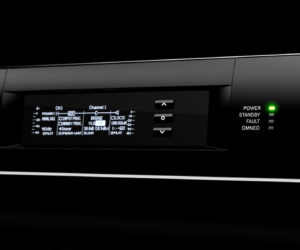Some would say we’re taken for granted. Others might say we’re misunderstood. Still others occasionally say “thank you.” Who are we? Your humble servants, equipment service technicians – or “service techs” for short.
Is it true that we stick pins in power amp dolls while dancing naked under the full moon with bones through our noses in order to get your gear repaired to working order?
Or how about the rumor that we collect large bags of cash for a seemingly small amount of work and then laugh all the way to the bank?
Yeah, right – and Elvis dates my sister, both escorted to a private movie theater by little green men! The reality is that service techs are an “inconvenient but necessary” evil of the pro audio industry. And truth be told, we sometimes get a complex about what we perceive as the vast under-appreciation of the masses.

We’re also called a “strange breed,” but the bottom line is that service techs strive for the same common fundamentals as the majority of folks in this industry: personal satisfaction, which for us means seeing gear come back to life under our care, with the ability to make a living doing this.
So let’s try and dispel some of the common rumors and misconceptions about what goes on “in the room behind the back room,” shall we?
Hard Knocks
Fixing gear – properly – is not easy. It takes a very long time to learn how to do it. Often, folks want to know what school we might have attended to learn our trade. Generally, the correct response is the “University of Hard Knocks” – and it sure as heck is not MIT.
A degree in engineering might qualify someone to design equipment, but this is hardly realistic preparation for what is found on the repair bench. Our skills are acquired in real time on a day-to-day basis. A reasonable education in the basics of electronics and pro audio gear operation is essential.
Our apprenticeship in the school of hard knocks is the best, albeit most time-consuming, way to learn. Those who learn from real-life failures become better techs when all is said and done. It comes with the territory.
Anyone traveling this road must get used to the smell of burning components and gets a rote memory for picking up the soldering iron by the end with the cord attached. Burnt components smell bad, burnt flesh worse!
So often we get pieces in to fix where “a friend of mine” with “an EE degree” or “who knows electronics” has “looked at it.” Without getting into the gory details, suffice to say that these well-meaning friends usually end up costing the customer even more money.
We have no idea what was tried, and the quality of workmanship is less than stellar. Further, it can lead us down the wrong troubleshooting road. The end result is more time spent making the repair, which costs more money. (In the world of service techs, the phrase “time is money” definitely applies.)
On the surface, service tech labor rates appear astronomical, sometimes in the neighborhood of $100-plus per hour.
Complaints are especially prevalent in large metropolitan areas (also known as “music hubs”), and perhaps is a reason that many believe service techs are smoking Cuban cigars while driving around in Porsches with our supermodel girlfriends.



